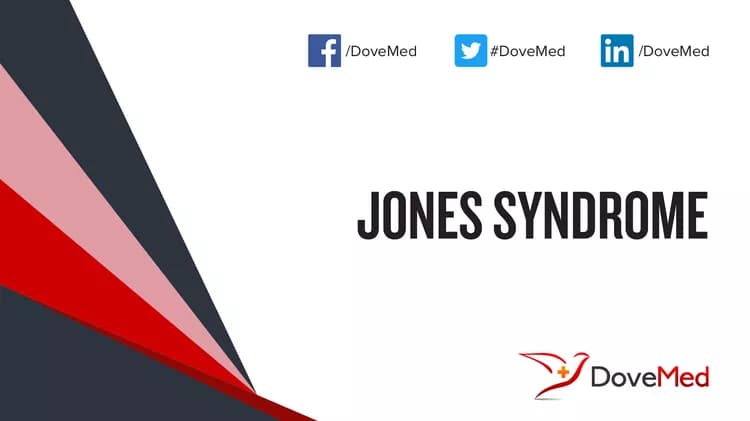What are the other Names for this Condition? (Also known as/Synonyms)
- Familial Gingival Fibromatosis associated with Progressive Deafness
- Gingival Fibromatosis with Progressive Deafness
- Gingival Fibromatosis with Sensorineural Hearing Loss
What is Jones Syndrome? (Definition/Background Information)
- Jones Syndrome is a very rare condition characterized by gingival fibromatosis (enlargement and overgrowth of the gums) and progressive, sensorineural hearing loss
- The onset of gingival fibromatosis usually occurs with the eruption of the permanent teeth. Excessive growth of the gums may cause displacement of teeth, over-retention of primary teeth, and increased spacing
- Jones Syndrome is inherited in an autosomal dominant manner, but the underlying genetic cause is not yet known. Only a few families with Jones Syndrome have been reported
(Source: Jones Syndrome; Genetic and Rare Diseases Information Center (GARD) of National Center for Advancing Translational Sciences (NCATS), USA.)
Who gets Jones Syndrome? (Age and Sex Distribution)
- Jones Syndrome is a rare congenital disorder, reported in just over 20 individuals in two families, spanning 3 generations in one family and 5 generations in the other
- The presentation of symptoms typically occurs when one starts developing permanent teeth
- Both males and females may be affected
- Worldwide, individuals of all racial and ethnic groups may be affected
What are the Risk Factors for Jones Syndrome? (Predisposing Factors)
- A positive family history may be an important risk factor, since Jones Syndrome can be inherited
- Currently, no other risk factors have been clearly identified for the syndrome
It is important to note that having a risk factor does not mean that one will get the condition. A risk factor increases one’s chances of getting a condition compared to an individual without the risk factors. Some risk factors are more important than others.
Also, not having a risk factor does not mean that an individual will not get the condition. It is always important to discuss the effect of risk factors with your healthcare provider.
What are the Causes of Jones Syndrome? (Etiology)
- The gene mutations causing cause of Jones Syndrome are not known at the present time
- The condition is inherited in an autosomal dominant manner
Autosomal dominant mode of inheritance: Autosomal dominant conditions are traits or disorders that are present when only one copy of the mutation is inherited on a non-sex chromosome. In these types of conditions, the individual has one normal copy and one mutant copy of the gene. The abnormal gene dominates, masking the effects of the correctly function gene. If an individual has an autosomal dominant condition, the chance of passing the abnormal gene on to their offspring is 50%. Children, who do not inherit the abnormal gene, will not develop the condition or pass it on to their offspring.
What are the Signs and Symptoms of Jones Syndrome?
The signs and symptoms of Jones Syndrome may include:
- Displacement of teeth
- Over-retention of primary teeth
- Increased spacing
- Painful chewing
- Absence of teeth (oligodontia)
- Extra (supernumerary) teeth
Very frequently present symptoms in 80-99% of the cases:
- Delayed eruption of teeth
- Gingival fibromatosis
- Gingival overgrowth
- Sensorineural hearing impairment
Frequently present symptoms in 30-79% of the cases include progressive sensorineural hearing impairment.
(Source: Jones Syndrome; Genetic and Rare Diseases Information Center (GARD) of National Center for Advancing Translational Sciences (NCATS), USA.)
How is Jones Syndrome Diagnosed?
Jones Syndrome is diagnosed on the basis of the following information:
- Complete physical examination
- Thorough medical history evaluation
- Assessment of signs and symptoms
- Dental examination
- Laboratory tests
- Imaging studies
- Biopsy studies, if necessary
Many clinical conditions may have similar signs and symptoms. Your healthcare provider may perform additional tests to rule out other clinical conditions to arrive at a definitive diagnosis.
What are the possible Complications of Jones Syndrome?
The complications of Jones Syndrome may include:
- Inadequate weight gain or weight loss, due to problems with chewing food
- Speech impediment
- Deafness
- Embarrassment and low self-esteem
Complications may occur with or without treatment, and in some cases, due to treatment also.
How is Jones Syndrome Treated?
There is no cure for Jones Syndrome, since it is a genetic condition. The treatment is usually given to manage the signs and symptoms and any complications that develop. The following methods may be useful:
- Good oral hygiene
- Surgical correction of enlarged gums
- Therapy to improve speech
- Hearing aids for improving hearing loss
How can Jones Syndrome be Prevented?
Currently, Jones Syndrome may not be preventable, since it is a genetic disorder.
- If there is a family history of the condition, then genetic counseling will help assess risks, before planning for a child
- Active research is currently being performed to explore the possibilities for treatment and prevention of inherited and acquired genetic disorders
Regular medical screening at periodic intervals with tests and physical examinations are recommended.
What is the Prognosis of Jones Syndrome? (Outcomes/Resolutions)
- The prognosis of Jones Syndrome is dependent upon the severity of the signs and symptoms and associated complications, if any
- Individuals with mild conditions have better prognosis than those with severe symptoms and complications
- Typically, the prognosis may be assessed on a case-by-case basis
Additional and Relevant Useful Information for Jones Syndrome:
The following DoveMed website link is a useful resource for additional information:
Related Articles
Test Your Knowledge
Asked by users
Related Centers
Related Specialties
Related Physicians
Related Procedures
Related Resources
Join DoveHubs
and connect with fellow professionals


0 Comments
Please log in to post a comment.